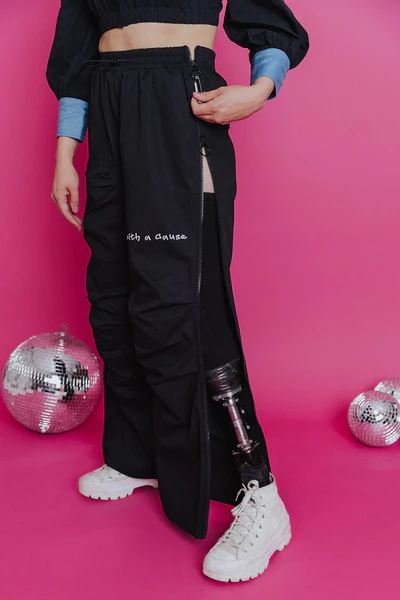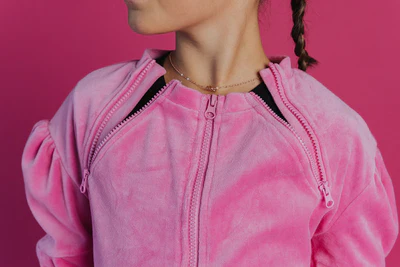By Noah Chase
Finding stylish and adaptive clothing can be a challenge for people with disabilities, as the fast-paced fashion industry prioritizes trends over inclusive design.
“I realized there was a huge need for clothing for people with disabilities and chronic illnesses,” said Tampa Bay fashion designer, Lady Natasha Fines. “I brought it up to the companies I worked for, but they didn’t want to invest in the research because it was a subject they weren’t familiar with.”
Fines decided to use her passion for fashion to create a brand full of adaptive clothing that is functional for people with specific needs and also meets modern style trends.
Fines Adaptive Fashion features clothing with a variance of specific functions to help people with disabilities. Her clothes range from utilizing magnetic closures with extra zippers to hook and loop closures, also known as velcro.
Outside hitter of the USA Women’s Volleyball Sitting National Team and Lady Fines model, MaKenzie Wittman, is a left side above-the-knee amputee and needs constant access to her prosthetic; which is a feature that most clothing and fashion brands do not provide.

“I live in Minnesota,” Wittman said. “I cut all my pants off on the left side and so then my limb is exposed, and if it’s cold out, it’s not the greatest thing to have happening. With Lady Fine’s clothes, I’m still able to wear it over my prosthetic and keep my limb warm, but I also have access to my leg whenever I need it.”
Another model, Gloria Stephens, echoed that same appreciation for inclusive fashion.
“It’s really nice to have someone like Natasha who made a brand specifically for disabled people that’s also stylish and usable,” she said.
In addition to requiring regular access to her port-a-cath — a catheter placed in a large vein near the heart — Stephens occasionally uses a wheelchair whenever she is outside of her home.
“(Fines) takes style and then turns it into something accessible because people with disabilities who need these adaptive items deserve to feel nice and look nice too,” Stephans said.
Following the success of her fashion brand, Fines also launched Rebels With a Cause, a nonprofit aimed at challenging the fashion industry to design more inclusively for people living with disabilities.
Rebels With a Cause also addresses bigger issues such as the lack of accessibility for people with disabilities in common places throughout the community.
“They assume people with disabilities aren’t their customers,” Fines said. “But the truth is that the customers exist. They just don’t have the products available for them.”
Rebels With a Cause organizes fashion shows featuring people with disabilities and provides educational outreach to colleges, universities and other organizations about the importance and practicality of adaptive clothing.
“There’s a general lack of education,” Fines said. “People are often stuck in their bubble. If they don’t personally know someone with a disability or chronic illness, they don’t realize how much of a need there is.”
Fines said she wants her clothing to share an important message to people with disabilities.
“You are able to do you,” she said, “and you deserve to feel just as confident as someone that doesn’t have a disability or chronic illness.”

